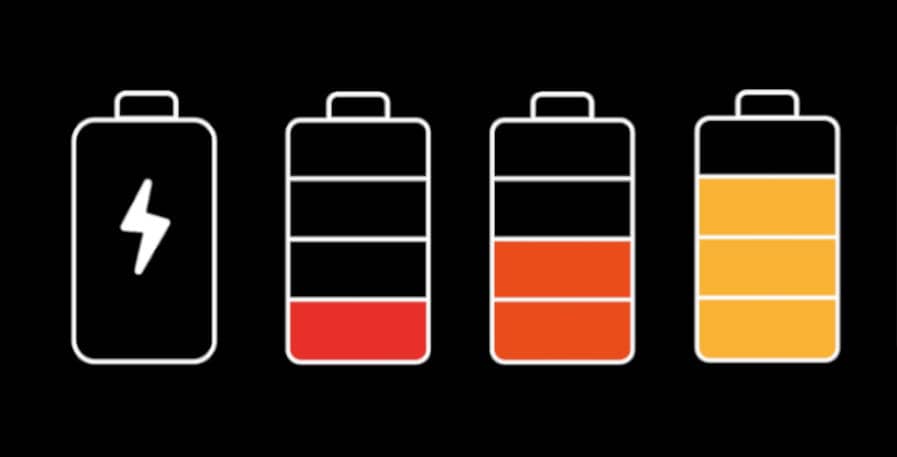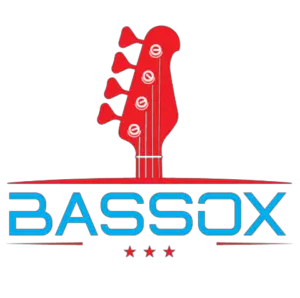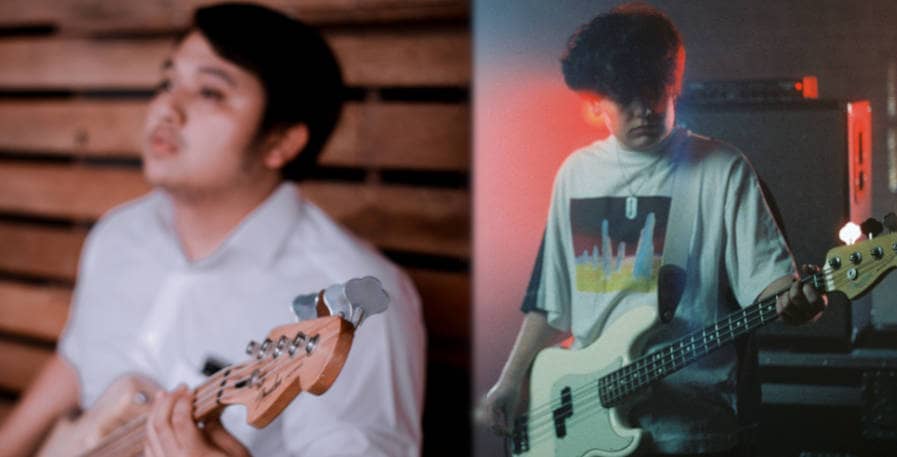The Jazz and the Precision bass are two of the most commonly played basses out there. Both have been played by various legendary bassists and have been used in various genres. But which instruments should you start out with, and is a Jazz or Precision Bass better for beginners?
The Jazz Bass is a good beginner bass for young bassists or people with small hands. It is also more suited for slapping. The Precision Bass is an overall good beginner bass as it is straightforward to play, doesn`t have a battery, and has easy-to-use tone settings.
Thus, while both basses are good choices for beginners, some bassists will definitely prefer one over the other.
Therefore, I`ve written this guide to help you make an informed choice on whether the J or P bass will suit you the best as a beginner.
I will cover size, tone settings, playability, pickups, and the difference between the active Jazz bass and the passive P bass. Lastly, we`ll take a look at the importance of what genres you prefer, and why it`s important to consider what bass your idols play.
J Bass and P bass neck dimensions
The precision bass and jazz bass differ in how thick they are at the nut. P basses have a width of 1.69″, or 43mm at the nut. J basses have a width of 1.5″, or 38mm. The thickness of the necks is more similar further down the bass and most modern models are identical at the bridge.
The difference in neck thickness has a big impact on how it feels to play the two instruments.
As the string spacing is thinner on the J bass strings are easier to reach. This can make the instrument feel less cumbersome to play for beginners, children, or bassists with small hands.
Because the string spacing is wider on the P bass strings are harder to reach. The upside of this is that it`s easier to keep unplayed strings muted, which is beneficial for beginners.
Bass guitars are big and long instruments. Thus, children below the age of 14 might find the thinner neck of the J bass to fit their physiology better. It is also not an instrument that can be outgrown, and it can thus double as both a beginner and an intermediate bass.
The wide string spacing of the P bass makes it a beginner-friendly instrument. Thus, as long as the thicker neck isn’t too big for the hands of the player, this bass makes it easy to play with control and with clarity.

Active VS Passive
The jazz bass is an active bass, while the precision bass is passive.
This means a couple of things. Most notably, jazz basses have a battery, whereas passive basses do not. If the battery of the jazz bass gets drained, it will not be able to produce an amplified sound until the battery is switched.
Most of the time, this is not something you have to pay much attention to. This is because batteries generally last 6-12 months in an active bass. It is however an extra step of maintenance to take into consideration. Furthermore, if the battery gets drained, a beginner might not be aware that this is the reason their bass isn`t making a sound.
These factors make the jazz bass somewhat less beginner-friendly. The abovementioned issues can however be circumvented by not leaving the bass plugged in, changing the battery every 6 months, or checking the battery regularly with a voltmeter.
Since the Precision bass doesn`t have a battery, it can always be plugged in and played. This makes it more convenient and less deterring for beginners overall.
The difference in sound between P and J basses
The J bass has a lot of tonal flexibility and allows the player to set a fitting tone for any genre. It is a flexible and diverse instrument. However, the bassist has to make good use of the tonal options it offers.
With 2 pickups that you can solo or blend together, and some models having multiple EQ knobs, it can be a lot for a beginner to wrap their head around. While learning to make good use of these options is a useful skill for a new bassist, this can also feel overwhelming.
The P bass has fewer tonal options, as it only has a master volume and a tone knob. Thus, it always retains its characteristic tone, which is known and loved in many different genres. In other words, it does one thing, but it does that one thing really well.
For beginners, this makes the precision bass a great choice. It allows you to get a great tone without knowing anything about EQ, pickups, or amp settings. Because of this, you can focus on learning the instrument and won`t have to feel deterred by the tone not being as good as you`d want.
For a more in-depth answer to the disticintion between their tone, read my full guide on the difference in sound between J and P bass pickups.

Genre Choice
Another thing to consider is what types of music you are looking to play.
Both basses have been used in every genre under the sun, and both instruments can be used for all types of music. However, the P bass is more typical in other genres than the Jazz and vice versa.
The precision bass is widely used in rock and punk. Thus, if you as a beginner are mainly interested in these genres, the P bass will help you fit well into any rock band, or achieve a gritty punk bass tone.
For Funk, Jazz, and Metal, a Jazz bass is often a more fitting choice.
While both basses can be slapped, slapping a precision bass won`t produce the type of tone that is commonly associated with slapping. Thus, for funk, or any other genre that has slap in it, I would recommend a Jazz bass for a beginner.
Jazz and metal can be demanding genres for beginners for several reasons. One of these is that finding a fitting tone is crucial for being able to do your job as a bass player.
Playing metal on a precision bass is a fine choice, but most bassists that do so play multiple basses and only use the precision occasionally. A P bass will also work for jazz, but it can quickly start to feel limiting due to its lack of tonal options.
Emulate your inspiration
A major thing to consider when getting your first bass is to look at what inspired you to pick up the instrument in the first place. It is best then to look at what type of instrument your favorite bass players used.
Famous Precision Bass players
While some bassists only use the P bass occasionally, some fall in love with the instrument for life.
“I was just enthralled by the instrument. Enthralled by DeeDee Ramone, I mean, enthralled by Horse Panter, The great James Jamerson and all those Motown songs and everything. And you start hearing it, and it just sort of gets into you, you know. That`s all I wanted to do; you know, be a bass player.”
Matt Freeman of Rancid on The Fender Precision Bass – Intervew With Fender
Here is a list of noteworthy bassists that have mainly, or exclusively played a Precision bass:
| Bassist: | Band: |
| George Porter | The Meters |
| Steve Harris | Iron Maiden |
| James Jamerson | [Various Mowtown recordings] |
| John Deacon | Queen |
| Paul Simonon | The Clash |
| Roger Waters | Pink Floyd |
| Brian Wilson | The Beach Boys |
| Sting | The Police |
| Duff McKagan | Guns N` Roses |
| Ray Shulman | Gentle Giant |
| DeeDee Ramone | The Ramones |
| Matt Freeman | Rancid |
Famous jazz bass players
It is harder to emulate the tone of Jazz bass players than precision bass players. This is both due to the jazz bass having more tonal options and that it is more common for j players to play a wide range of instruments.
“My personal favourite bass players, and some legends like John Paul Jones of Led Zeppelin, and Jaco Pastorius: They are Jazz Bass players and it`s a tried and true instrument that`s been around for a long time.”
Eva Gardener (Bassist for Pink and Gwen Stefani) – Fender Player Plus Jazz Bass Showcase
With that said, playing the same bass as them is a great starting point. Furthermore, while recreating their tone with a Jazz bass pose some challenges, it is next to impossible with a P bass.
| Bassist: | Band: |
| Jaco Pastorius | Wheater Report |
| Geddy Lee | Rush |
| Verdine White | Earth, Wind, and Fire |
| John Paul Jones | Led Zeppelin |
| Adam Clayton | U2 |
| Paul Turner | Jamiroquai |
| Greg Lake | Emerson, Lake, and Palmer |
| Flea | Red Hot Chili Peppers |
| Marcus Miller | Various: Miles Davis, Eric Clapton, Herbie Hancock |
| Mark Hoppus | Blink-182 |
| Frank Bello | Anthrax |
Conclusion
While you can`t go wrong with either the Jazz or Precision bass as a beginner, chances are that you will prefer one over the other.
Which of their necks you find most suitable will depend on your physiology. If you are on the smaller side, you will still be able to play the P bass, but the J bass will generally be a more preferable instrument to start out with.
Jazz basses have 2 pickups, more tonal options, and a battery. Precision basses have a single-tone knob, a single-coil or split-coil pickup, and no battery. This makes the P bass an easier instrument to deal with it for beginners, as you can always just plug it in and play and be guaranteed to get a good sound out of it.
It is possible to play with a pick, with your fingers, or slap both the P and J bass. However, the P bass is not commonly used for slapping and will produce a thick sound when slapped. This can be deterring for beginner-level bassists who are looking to sound like the slap bassists they have heard on record.
Thus, the Jazz bass is generally a better choice for funk and other slap-heavy genres. It is also a good choice for jazz and metal, where it is beneficial to have a lot of tonal options. The P bass will work for these genres too, though the instrument might feel limiting at times. For rock and punk, you can`t go wrong with a Precision bass.
I also highly recommend researching what type of bass your favorite bassists play. Your idea of a great bass tone will, whether consciously or subconsciously have been shaped by them. Thus, consider getting the same bass as them in order to have a great starting point for emulating their tone.
Playing the bass is a demanding, but rewarding job. It is not for everyone, but for some, it is the perfect instrument to play. If you are on the fence about getting your first bass, I recommend reading my guide on whether you should play the bass guitar or not.

